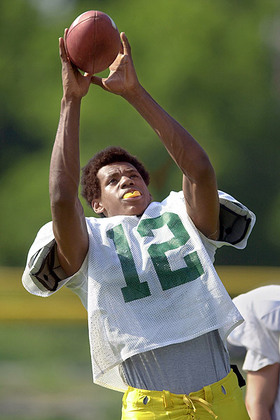Often in today's society we are moved by what is popular or trendy. When a disease strikes down someone famous such as we saw with Robin Williams last week, the illness becomes relevant in the national spotlight again. The reality is there are millions of people who are fighting daily battles with ALS, Cancer, Parkinsons, and many more debilitating diseases. They do it without fan fare or a spotlight on them. They cling to hope and struggle to survive with the love and support of those closest to them.
So whether or not you agree with dumping ice water on your head, I am certain we all can agree that the money raised will be a blessing to those who suffer from ALS. However, I would encourage everyone to look closely around them for those who are hurting right in their community. There are opportunities all around us to make a difference in the lives of others who might be struggling or afflicted. Make a conscious effort to live each day looking for an opportunity to help and serve those who need it. Not because it's trendy and can be a cool video online, but because it will make a huge impact on the quality of someone's life!
Lou "The Iron Horse" Gehrig was a major league baseball player who was diagnosed with ALS which forced him to retire from the Yankees at the age of 36 and took his life two years later. He finished with a career batting average of .340, an on-base percentage of .447, and a slugging percentage of .632, and he tallied 493 home runs and 1,995 runs batted in (RBIs). A seven-time All-Star and six-time World Series champion, Gehrig won the Triple Crown in 1934 and was twice named the American League's (AL) Most Valuable Player. Gehrig was the first MLB player to have his uniform number retired, and he was elected to the Baseball Hall of Fame in 1939. Gehrig's speech on July 4, 1939 is one of the most famous sports speeches of all-time. No all of the speech was filmed so the video below only has some parts but the full transcript of the speech is below the video. Well worth your time to watch and read!
Look at these grand men. Which of you wouldn’t consider it the highlight of his career to associate with them for even one day?
Sure, I’m lucky. Who wouldn’t consider it an honor to have known Jacob Ruppert – also the builder of baseball’s greatest empire, Ed Barrow – to have spent the next nine years with that wonderful little fellow Miller Huggins – then to have spent the next nine years with that outstanding leader, that smart student of psychology – the best manager in baseball today, Joe McCarthy!
Sure, I’m lucky. When the New York Giants, a team you would give your right arm to beat, and vice versa, sends you a gift, that’s something! When everybody down to the groundskeepers and those boys in white coats remember you with trophies, that’s something.
When you have a wonderful mother-in-law who takes sides with you in squabbles against her own daughter, that’s something. When you have a father and mother who work all their lives so that you can have an education and build your body, it’s a blessing! When you have a wife who has been a tower of strength and shown more courage than you dreamed existed, that’s the finest I know.
So I close in saying that I might have had a tough break – but I have an awful lot to live for!


 RSS Feed
RSS Feed
